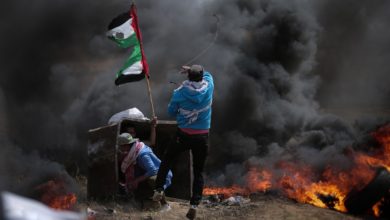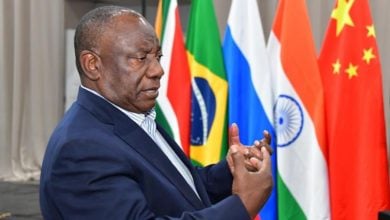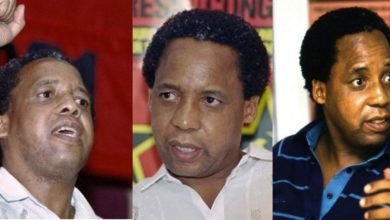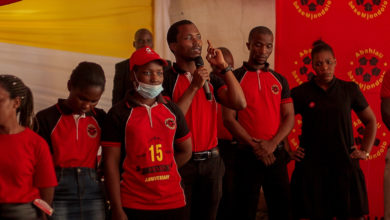On Feb. 27, the Economic Freedom Fighters (EFF) and the African National Congress (ANC) voted to amend the constitution of South Africa to allow land expropriation without compensation in an effort to address the legacy of dispossession of African people by white settlers. The EFF tabled the motion in the South African parliament, which passed with the two-thirds majority necessary to amend the constitution. The ANC’s 249 seats (62 percent) combined with the EFF’s 25 seats (6 percent) carried despite vigorous disagreement from opposition parties.
Although the policy implementation has not been worked out, the reaction to the amendment has been sharply divided. The vast majority of wealth and land is still in white hands 24 years after the end of legal Apartheid, but the corporate media is ignoring this legacy of oppression and prematurely warning that economic catastrophe is on the horizon.
Apartheid gone, but vast racial inequality persists
Despite 24 years of majority rule, the legacy of formal Apartheid still profoundly shapes the political, social and economic life of South Africa. In 2017, the average white South African has income that is five times that of an average Black South African. In 1994, the year of the first democratic, post-Apartheid election, white South Africans held 87 percent of the land of the country, and in 2012 they still controlled 80 percent of the country’s land despite the fact that white people make up only 9 percent of the population. Since the end of Apartheid, income inequality has actually increased, and this is most keenly felt in rural areas where economic development has not been prioritized.
As a settler colony, the issue of land in South Africa is also profoundly political. Under Apartheid, Black people were confined to “bantustans” or “homelands” that were nominally “independent” areas for Black people to govern. These areas made up only 13 percent of the country, and were in disparate locations, often on poor quality land and far from urban centers where people could find work. People of working age usually moved to the large cities, leaving the young and elderly to support themselves in desperate conditions.
Outside of these “homelands” Black people had to have identification documents from the Apartheid government, known as “passes”, to travel within their own country. Black people could be arrested and deported to the nearest “homeland” for forgetting a pass at home. The indignity and oppressiveness of the pass system created militant protests against their imposition in 1960, leading to the Sharpeville Massacre. While these racist restrictions were removed in 1994, the consequences of these policies have persisted.
The legacy of Apartheid development has fostered a wide-ranging conversation about the need for “radical economic transformation” in South Africa today. At the ANC’s most recent national conference, the ANC adopted policy proposals in the name of “radical economic transformation”, including a resolution in support of land expropriation without compensation.
The original ANC land reform policy was the market-value based “willing buyer, willing seller”, which was replaced in 2013 by the principle of “just and equitable compensation” for appropriated land. Neither of these policies were successful, and despite controlling two-thirds of the South African parliament until 2014 the ANC had not made a significant effort to accelerate the pace of land reform.
The government has not conducted a reliable land audit since 1994, and there is still substantial confusion over who owns what land in South Africa. However, the fact that the Department of Rural Development and Land Reform (DRDLR) has only transferred 8 percent of private farm land from 1994 – 2018 shows that a major acceleration is needed for the majority of land to be in the hands of the Black population. This slow rate of land transfer is a result of the weakness of the department, bureaucratic inefficiency and land reform falling prey to corruption in the government.
The ANC government’s market value based policies created opportunities for private corporations and trusts to inflate their land values, and the DRDLR has been forced to pay large sums to white landowners. The department has also not sufficiently supported Black landowners and farmers after they reclaim their land, often leading to land being resold to the same private interests that previously owned it. This broken process represents an ideal environment for government connected business interests to personally benefit from land restitution and for government officials to profit from these deals.
The people demand land
Although the dysfunctional cycles in land reform policy make the possibilities for meaningful restitution seem remote, the Black masses in South Africa have been continuously engaging in struggles over land. The majority of urban Black South Africans still live in intensely oppressed neighborhoods called townships, which have been strongholds of popular resistance since Apartheid. The desperate conditions in the townships have prompted land occupations, which the elite and their media outlets call “land invasions”, of empty or underused land.
These occupations have become a regular feature of urban life in South Africa, with some occupations achieving permanent residence on the land that they occupy. The ANC government has consistently used violent repression against these occupations by destroying structures, confiscating property and brutalizing protesters.
Mass frustration at the ANC’s failings created the opportunity for opposition parties to gain significantly in recent years. Emerging in 2013, the radical left party Economic Freedom Fighters has been sharply critical of the ANC, and, although it has a short history and relatively small membership compared to the ANC, it has been able to connect to the disaffection and frustration of many Black people, especially the youth. The EFF has consistently pushed the question of land expropriation without compensation as a way to expose the ANC’s slow action on land reform. As recently as 2017, the ANC refused to support this principle in parliament.
The sudden emergence of the EFF has been coupled with rising mass opposition to neoliberalism and racial capitalism in South Africa. In 2015, students led the Fees Must Fall movement and shut down every university and technikon campus in the country, which represented a clear signal that the post-Apartheid “born free” generation is deeply critical of the current state of the country.
Despite a labor movement facing many challenges, South Africa still has the most strikes of any country in the world. A new revolutionary pole in the trade union movement has emerged with the formation of the South African Federation of Trade Unions last year, a development driven by the National Union of Metalworkers of South Africa. NUMSA is also leading an effort to establish a new political formation, a yet-to-be-named organization referred to provisionally as the Movement for Socialism.
In 2012, the Marikana strike at the Lonmin platinum mine made worldwide headlines as 34 miners were gunned down by police. The murder of these heroic miners did not break the strike, however, and the Marikana struggle stands as an example of the militancy and determination of South African workers.
The new ANC and South African president, Cyril Ramaphosa, who has become the face of the land expropriation amendment, has been implicated in the terrible violence against the miners at Marikana. Ramaphosa is one of the wealthiest men in South Africa and holds a seat on the Lonmin board. On the eve of the massacre he urged the national police commissioner to act against what he characterized as “dastardly criminal actions” of the strikers. This is even more shocking since Ramaphosa rose to become a top ANC official after playing a key role in organizing the National Union of Mineworkers, in the 1980s.
While Ramaphosa has provided verbal support for land expropriation without compensation, his personal financial interests and history of anti-worker positions cast doubt on his ability to deliver the radical economic change so many people need.
While the ANC will speak favorably in principle about expropriation without compensation, the details of the new land policy may also have greater emphasis on economic stability than on radical change. But the momentum of revolutionary forces in the country will have a major impact on their calculations. It is clear that the people of South Africa will continue fighting for the demand first raised in the historic Freedom Charter — the 1955 political program that guided the struggle against Apartheid: “The Land Shall Be Shared Among Those Who Work It!”






